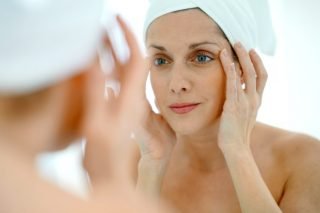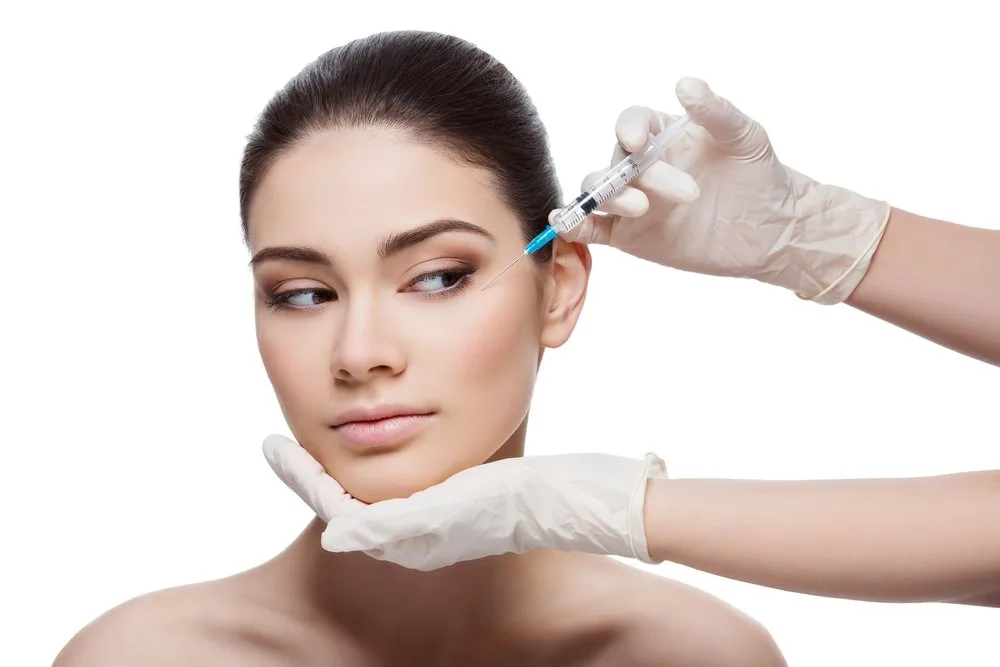Elective aesthetic treatments are no longer an unattainable luxury. For many, they have become a part of their regular skincare routines. But in the midst of a worldwide pandemic, what does this mean for an industry reliant on face-to-face procedures? Dr. Reza Mia explains how to adapt to the challenges.
The year 2020 will be remembered as the year in which Covid-19 took the world by storm. Not only did we have to worry about protecting ourselves from contracting the virus, but our livelihoods were at stake too. There isn’t one industry that wasn’t affected by the pandemic in some way. However, one of the industries hardest hit was the beauty and aesthetic medicine industry.
The challenge of aesthetic treatments during a pandemic
While there are several promising vaccines on the horizon, one thing is for certain: this pandemic is not going to disappear overnight. The “new normal” we have come to accept will be a part of our lives for quite some time to come.
But what does this mean for the aesthetic medicine industry? When South Africa first embarked on a nationwide lockdown, the service industry, including hairdressers, beauty salons, and skincare clinics, had to close their doors. It was only when the country was downgraded to lockdown level three (a good three months later) that consumers were able to once again book their facials, hair cuts, and other beauty treatments.
For many small businesses, the past three months proved fatal. Others had to adapt and implement new protective measures before they were allowed to commence with business. While the beauty and aesthetic medicine industries are known for taking exceptional measures when it comes to cleanliness and hygiene, these had to be ramped up. New safety protocols have quickly become part of all doctors’ and therapists’ daily routines, but not without cost and effort.
PPE, as well as spray tents, are precautions
In addition to the strict use of PPE such as masks, gloves, and other protective equipment, I also invested in a spray tent intended to be used upon arrival by everyone visiting the practice. Making use of hypochlorous acid, a disinfecting agent that poses no harm or threat to humans, the spray tent also features an absorbent mat to disinfect shoes. Visitors to my practice have to wear masks (excluding the time in which they are being treated, of course!), perspex screens were positioned at the reception desk and special no-touch door handles were also installed.
Sudden uptake of patients
As practices, salons, and spas prepared to open their doors, the question on everyone’s lips was whether the public was ready to support them. Lockdown level three proved that South Africans were ready to commence with their regular treatments and routines, and as we’ve moved down to levels two and one, the momentum has kept ongoing.
Skin concerns relating to stress
But why this sudden uptake? During the lockdown, a lot of people were deprived of their regular treatments. After a few months of being stuck at home, going out for an aesthetic treatment was a treat – one they really looked forward to. An increase in skin concerns relating to stress also prompted people to seek non-invasive solutions.

You would think that staying at home and only meeting or socializing via Zoom would decrease the desire for cosmetic procedures, but the reality is that looking at themselves on a screen every day actually increases people’s desire to undergo treatments.
Lip fillers and maskne
Before the pandemic hit, the most popular procedures performed at my practice were chemical peels, lifting threads, fillers, and Botulinum toxin injections. Post-lockdown, lip fillers were particularly popular – “probably because patients could hide behind a mask. The rise of maskne, a condition whereby the act of wearing a mask leads to breakouts around the mouth area, increased the need for acne treatments at the practice.
The pandemic certainly hasn’t deterred the desire for aesthetic treatments. If anything, it has made people more appreciative of the treatments available to them.
Aesthetic medicine has come a long way, and modern treatments are more readily available, more advanced, and more openly spoken about. But more than changing faces, they are changing lives positively. Some of the most positive (and even life-changing) effects I have seen have come from treatments such as injecting fillers under the eyes and around the nose area. Patients see and feel the change immediately. Treatments concerning the jowls also have a major impact on a patient’s self-esteem: it can lift the face, create a more defined jawline, and give the face a happier and healthier appearance.
Non-invasive aesthetic treatments are life-changing
And let’s not forget the life-changing effects that non-invasive aesthetic treatments can have on the body. Laser removal of unwanted body hair, for example, or sweat-reduction treatments have the ability to change a person’s life.
In a world obsessed with beauty, are non-invasive treatments enough? Many things can be done to prevent or postpone the need for surgical treatments. Surgery should not be one’s first line of defence. A lot of what we desire is achievable by means of injectables. Surgery only be considered if none of the non-invasive treatments available can achieve the desired result.
Lessons from a pandemic
What we’ve learned about the beauty industry is that even a global threat as big as a pandemic will not come between people and their aesthetic skincare routines for too long. While treatments were temporarily put on hold, their popularity soared as soon as they become available again. While aesthetic treatments in a Covid-19 world look somewhat different than they used to, they are no less relevant. In fact, now more than ever, it is time to take stock, look after ourselves, and do the things that make us happy and restore our confidence.
About Dr. Reza Mia
 Dr. Reza Mia is a leading aesthetic specialist based in Johannesburg, South Africa. Having graduated from the University of Witwatersrand with a medical degree at the age of 23, Dr. Reza sought to enhance his studies and boasts an MBA from the University of Liverpool, having obtained multiple distinctions. He fulfilled a life-long ambition of his when he passed the mentally challenging entrance exam to become a member of MENSA in 2013. Dr. Mia was awarded the Dean’s Scholarship for Entrepreneurship from the London School of Business and Finance for an MSc Finance & Investment degree where he majored in investment banking and capital markets, graduating with Merit. Most notably, Dr. Reza completed a dissertation in Aerospace OEM analysis, as well as an Advanced Diploma in Aesthetic Medicine.
Dr. Reza Mia is a leading aesthetic specialist based in Johannesburg, South Africa. Having graduated from the University of Witwatersrand with a medical degree at the age of 23, Dr. Reza sought to enhance his studies and boasts an MBA from the University of Liverpool, having obtained multiple distinctions. He fulfilled a life-long ambition of his when he passed the mentally challenging entrance exam to become a member of MENSA in 2013. Dr. Mia was awarded the Dean’s Scholarship for Entrepreneurship from the London School of Business and Finance for an MSc Finance & Investment degree where he majored in investment banking and capital markets, graduating with Merit. Most notably, Dr. Reza completed a dissertation in Aerospace OEM analysis, as well as an Advanced Diploma in Aesthetic Medicine.
Association with Dr. Robert Rey
Dr. Mia played a pivotal role in forming a business relationship with American Plastic Surgeon Dr. Robert Rey, also known as Dr. 90210, from E!’s hit show. Together they educate people on safe and responsible aesthetic treatments. They also provided people with Dr 90210’s skincare and anti-aging products in South Africa.His contributions to the fields of medicine, business, aviation, and philanthropy are vast, and it is only apt that Dr. Reza’s incredible journey has led him to become the go-to guy in these fields.
Dr Reza Mia is based in South Africa but consults widely. Visit www.drreza.co.za or follow Dr Mia on Instagram @drreza.sa.





![women [longevity live]](https://longevitylive.com/wp-content/uploads/2020/01/photo-of-women-walking-down-the-street-1116984-100x100.jpg)









